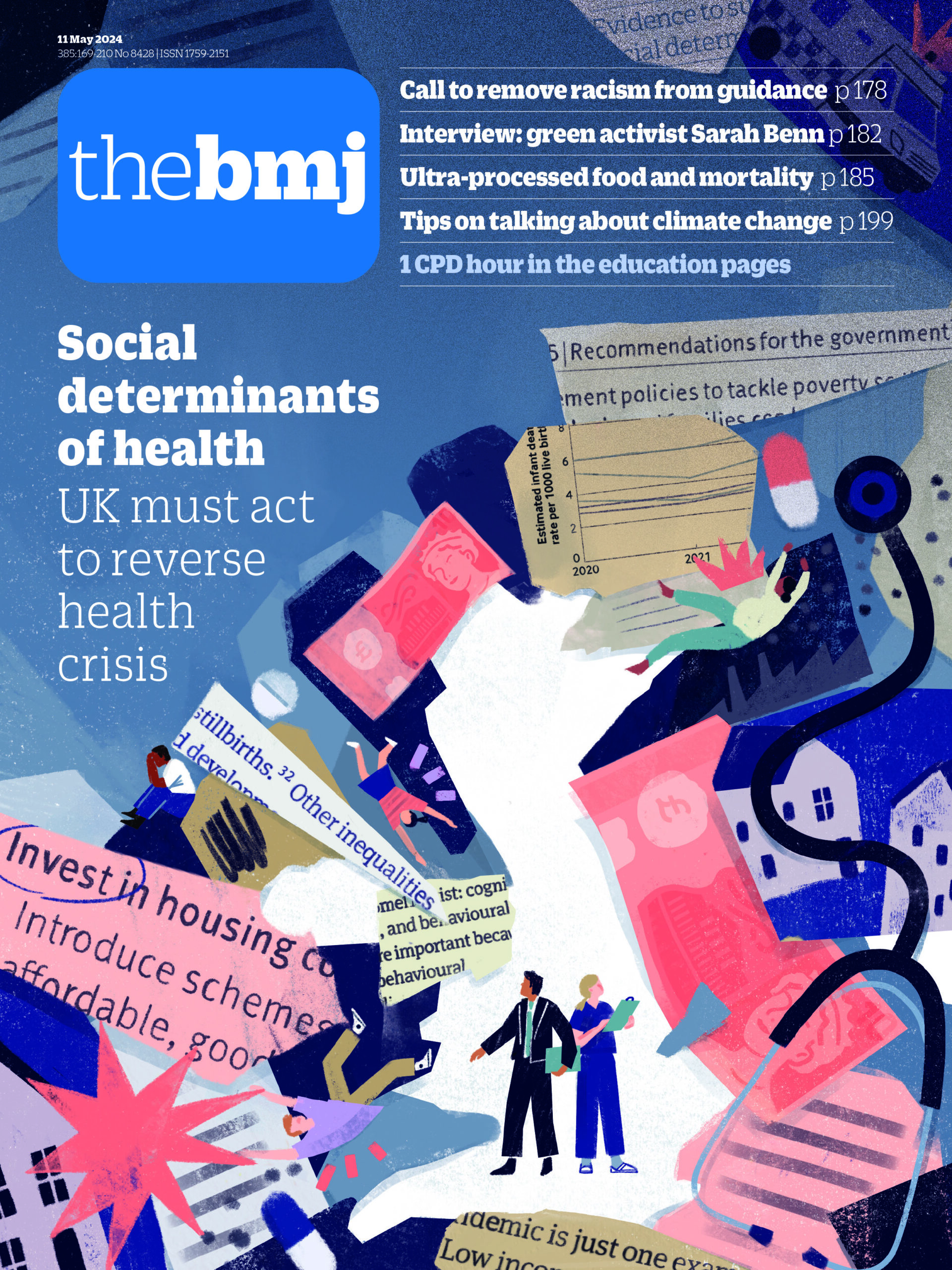TAVI for severe aortic stenosis and low surgical risk
A randomised controlled trial compared transcatheter aortic valve implantation (TAVI) with surgical aortic valve replacement (SAVR) in people with severe, symptomatic aortic stenosis and a low surgical risk. The multicentre study set in Germany is the first to do so without industry funding. The rates of death from any cause or fatal or non-fatal stroke at one year were lower in those randomised to TAVI (5.4%) compared with SAVR (10.0%) (hazard ratio 0.53, 95% confidence interval 0.35 to 0.79). Although the long term outcomes are still uncertain, an effective treatment that avoids surgery and has a faster recovery time would seem a more appealing option for patients, and may explain why 13.4% of participants randomised to SAVR crossed over or dropped out (9.8% and 3.6% respectively), compared with only 2.3% in the TAVI arm of the study.
N Engl J Med doi:10.1056/NEJMoa2400685
Aspirin fails in breast cancer
The story of aspirin and breast cancer recurrence has a familiar ring to it. Observational data hinted at a beneficial effect of aspirin on breast cancer recurrence. Excitement grew as subgroup analyses of randomised controlled trials of aspirin for cardiovascular disease supported this theory. But now comes a new randomised controlled trial to spoil things. It enrolled 3020 women in Canada who had undergone treatment for high risk non-metastatic breast cancer and randomised them to aspirin 300 mg or placebo. The study was stopped early after an interim analysis found higher rates of breast cancer recurrence in the aspirin group (141 events in the aspirin group and 112 in the placebo group, hazard ratio 1.27, 95% CI 0.99 to 1.63).
JAMA doi:10.1001/jama.2024.4840
New breast cancer screening recommendations
This week’s JAMA features a package of publications on the latest US Preventive Services Task Force recommendations about breast cancer screening. These include reducing the age that women in the US are offered screening from 50 to 40 years, with the conclusion: “with moderate certainty that biennial screening mammography in women aged 40 to 74 years has a moderate net benefit.” The task force also recommends that primary screening modalities should include digital breast tomosynthesis (3D mammography) to reduce the rate of false positives from screening. The updated modelling on which the guidelines are based estimates that, over the lifetimes of 1000 women who attend screening following the new recommendations, there would be 8.2 fewer breast cancer deaths and 14 cases of overdiagnosis.
JAMA doi:10.1001/jama.2024.5534
Fresh out the slammer
Studies have found that the days and months after being released from prison are associated with an increased risk of dying compared with the general population. However, what causes these extra deaths hasn’t been clear until now. Researchers analysed data from 30 cohort studies and nearly 1.5 million individuals across eight countries. They found that the risk of death is highest in the first week after release from prison and that the biggest causes of death during this time are alcohol and other drug poisoning and suicide. Over time, deaths from cardiovascular disease start to catch up, but alcohol and drugs remain the main cause.
Lancet doi:10.1016/S0140-6736(24)00344-1
Parental death in the US
The quote attributed to Stalin—“a single death is a tragedy, a million deaths are a statistic”—springs to mind when reading a cross-sectional observational study of the rates of parental death in the US. Between 1999 and 2020, an estimated 759 000 youths (under 18 years old) experienced parental death due to drug poisoning, with rates that increased by over 300% over this time. Another 434 000 youths were estimated to have lost a parent due to firearms. The matter-of-fact description of the data in the study makes the findings seem all the more bleak.
JAMA doi:10.1001/jama.2024.8391










